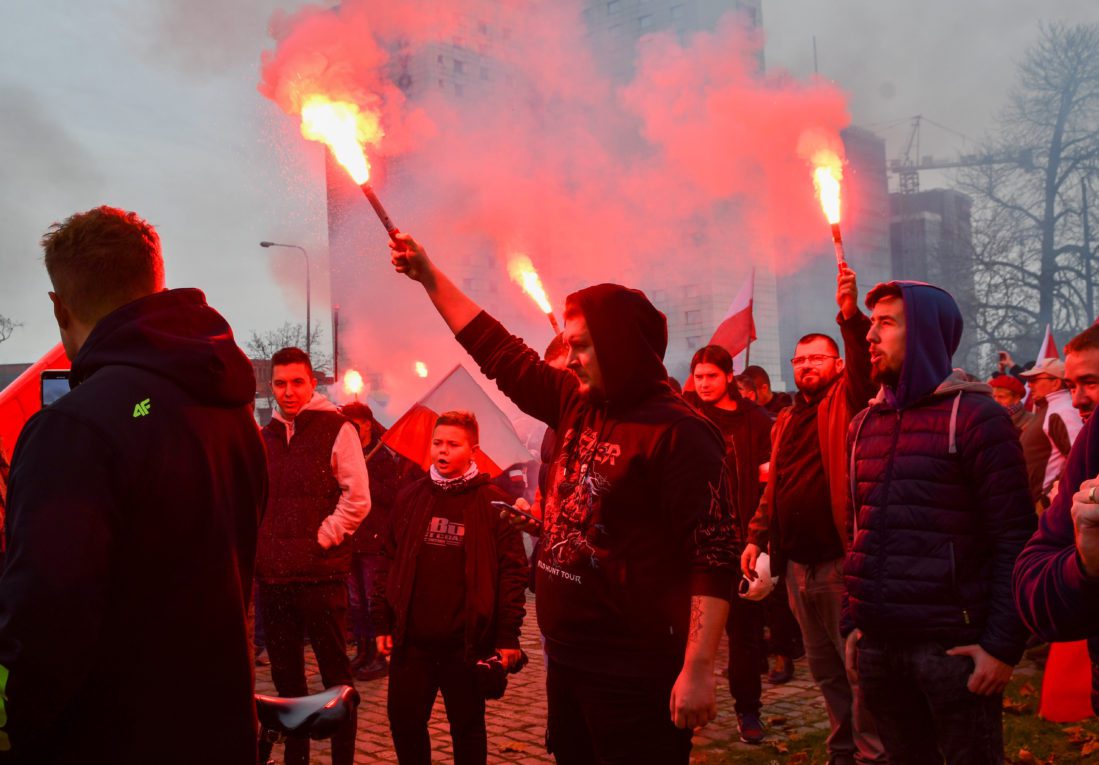Poland’s ruling party Law and Justice often gets portrayed as being ‘far-right’, and not without reason. The fact is, however, that another party already occupies that space of Polish politics, and support for it is increasing.
The Polish party Konfederacja Wolność i Niepodległość (usually shortened to just Konfederacja – Confederation), won 6.8 per cent of the vote at the country’s parliamentary election in 2019 and currently has 11 MPs.
At a by-election last week in the southeastern city of Rzeszów, the party’s candidate Grzegorz Braun won 9.15 per cent. He had been polling at over 13 per cent. With the ruling Law and Justice (PiS)-led coalition losing support, the far-right may be creeping back into the national picture.
With this in mind, an interview with someone from Confederation was arranged. But, doubts nagged. Is it intrinsically a bad idea to talk with a party that occupies the far-right of a political spectrum that is anyway right-leaning?
Those who believe even talking with such people breaks the rules of democratic society argue that it gives them a public forum they don’t deserve, a voice that should not be heard, that it creates a false equivalence.
Before my interview with Mateusz Marzoch, a spokesperson for the The All-Polish Youth (Młodzież Wszechpolska) – a component of Confederation – I asked people whose judgements in these matters I respect and whose opinions could be of value.
“There’s a difference between explaining and describing an abhorrent worldview and giving it a platform. Talking about and with these people always involves playing with fire, but we’ll never understand the physics of combustion without burning something,” Brian Porter-Szűcs, professor of history at the University of Michigan, said.
“I used to believe that one should not give odious people a chance to disseminate their views. I believe now that people should know what they represent and that we are wrong to try and protect readers/listeners from vile ideas,” said Anita Prazmowska, professor of history at the London School of Economics.
Confederation is made up of two main political forces. One is the National Movement (RN), formed in 2012 and merging far-right fragments such as the National Radical Camp and the All-Polish Youth. The other is KORWIN, led by the politician Janusz Korwin-Mikke, offering a mix of extreme neoliberalism and social conservatism.
The All-Polish Youth was created in 1922 as part of the National Democracy movement, and was modelled after the inter-war fascist movement Falanga. Roman Dmowski was its honorary chairman.
Its modern incarnation was founded in 1989, on the initiative of Roman Giertych, the former leader of the League of Polish Families (LPR). They declare themselves opposed to “doctrines promoting liberalism, tolerance, and relativism” and claim that the “Catholic ethic” should be irrevocable both in public and private spheres of life. The November 11 Independence Day marches in Warsaw have been dominated by the group for several years.
The interview
The aim was not on one hand to ridicule or belittle, or on the other hand to create a monster. What use would that do? It’s already been done and, anyway, it doesn’t work, the far-right seems to feed off both.
We start with the ‘accursed soldiers’ and the murders of Belarusians after the end of World War II by Polish soldiers fighting the incursion of the Red Army into Poland.
“There is no evidence to say that these people were killed because they were Russians. They were killed because they were communists. The military groups that were in the area informed the locals to leave their homes, before they burned them down. They wanted to punish them, but not kill them. Those that died did so because they were unable to evacuate in time and it wasn’t known there were people in there,” says Marzoch.
The argument is not very convincing. Were they killed deliberately because they were communist sympathisers or did they die by accident?

Leave a Reply